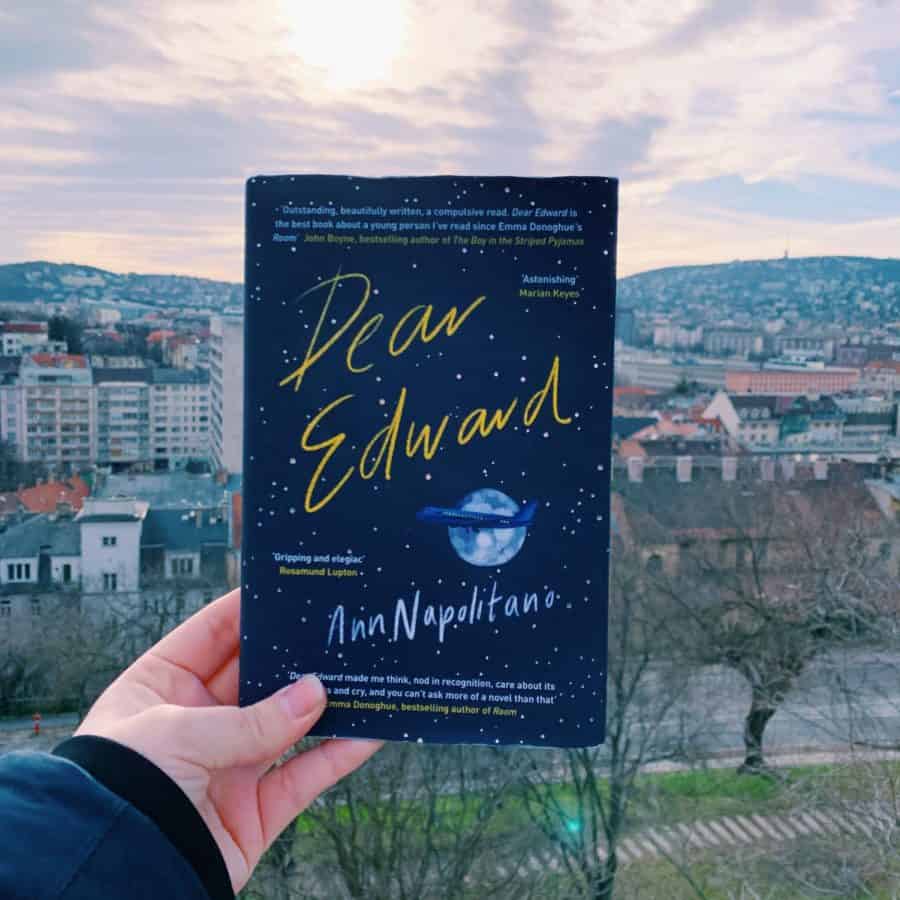From the Library: ‘Dear Edward’ is a love letter to those in grief
April 19, 2020
From the Library is a regular column reviewing New York Times Best Sellers.
When deciding what to read on your next flight, I can decidedly tell you what not to choose: Ann Napolitano’s latest novel “Dear Edward.” Centered on a plane crash that kills nearly everyone on board, picking this book as my inflight entertainment for a recent flight was definitely a misstep. Nevertheless, my death grip on the armrest was worth it: “Dear Edward” was a cathartic and poignant story that will make you want to text your mom and tell her just how much you love her, despite its predictability.
Edward is a 12-year-old boy whose life is completely upended when his family’s flight from New York to Los Angeles crashes. All 192 passengers onboard die –.except Edward. A newly minted celebrity for all the wrong reasons, Edward moves in with his aunt and uncle, and attempts to find some semblance of normalcy while coping with his grief and the ill-placed fame that being the sole survivor of the crash has brought him.
“Dear Edward” is a fantastic example of the power of writing and the place of books in the age of visual media. For most of the novel, there is little action. Edward struggles to sleep, eat and relate to his aunt and uncle. In the wake of such a traumatic event, Edward lives his life in a fog, only broken by his new neighbor Shay, the one person he feels doesn’t place an expectation on him to be “OK.” It would make for a dreadfully boring movie – but Ann Napolitano’s writing, alongside some solid character-building, carries it.
Being inside Edward’s mind through the worst of the mourning process is, frankly, depressing. I found myself taking breaks to walk around in the sun or putting the book down a bit earlier than planned in order to remind myself that my family hadn’t died in a horrible accident. While I haven’t experienced a loss like Edward’s, Napolitano’s writing is so believable, I felt like I had. Everything Edward does, from Edward’s resistance to sleeping in his aunt and uncle’s empty nursery to his panic during a soccer game in gym class, is a result of the twisted, angry grief that he can’t seem to escape from.
There were, however, glaring problems that kept me from absolutely loving this book. First, it’s predictable; Edward’s story has been told before. In fact, it’s the same story that’s been written a million times about loss and grief with a new coat of paint, albeit fantastic-looking paint: the numbness of the protagonist, periods of extreme sadness or anger, the love interest that anchors them, a reflective and uplifting end. While Napolitano made an attempt to differentiate her story with the fame Edward receives from his survival, she squanders it through most of the novel. Edward’s notability only comes into play at the very end, and even then only for a chapter or two. Napolitano did what she set out to do: write a sad, moving book. Nothing more.
Napolitano’s attempt to make her book moving is the other issue I had with this book. “Dear Edward” suffers from a plague that many other books of this variety succumb to: trying to be overly deep. Full of quotes designed to turn into cursive wall stickers, like “The air between us is not empty space,” and “So much could be solved, she thought, if we simply held hands more often,” drag this story down and at times turn it into pretentious preaching.
This book made me cry. It made me call home and text my friends to tell them all just how much they mean to me. If you like a sad story, I would recommend “Dear Edward” without hesitation. But I’d venture to say it doesn’t deserve a place on the Best Sellers list. It doesn’t take the chances it needs to in order to be anything more than another sad story, no matter how well written that sad story is.
Grade: B










